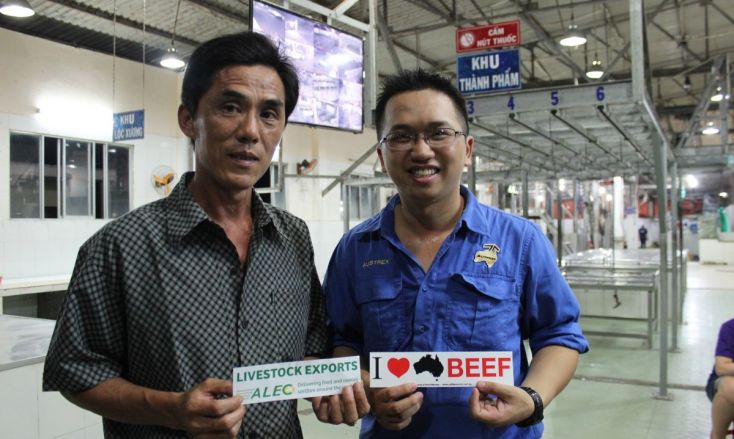News

Unworkable beef labelling proposal lacks merit
THE Australian Livestock Exporters’ Council (ALEC) has questioned the practical application of meat marketing industry reforms flagged today by the Federal Member for Mayo, Rebekha Sharkie MP.
ALEC CEO Simon Westaway said while the livestock industry welcomed Ms Sharkie’s interest in upholding the brand value of Australian red meat, her proposed reform was unworkable and failed to acknowledge the integrated nature of Australia’s red meat supply chains.
“Livestock producers are rightly very proud to have the meat derived from their stock marketed as ‘Australian’ in our overseas markets, regardless of whether it is exported as a boxed product, a whole carcase or shipped live,” Mr Westaway said.
“Australia produces a range of world-class farm commodities which are exported prior to processing due to the specific demand of the importer. Nonetheless, they are still Australian products and it is incorrect to suggest that they cannot or should not be marketed as such.”
Australia’s livestock export trade is one of the nation’s top 10 agricultural exports, generating $2 billion annually in export returns and providing employment for up to 10,000 Australians per year.
“The industry is a significant economic contributor by any measure. Any effort to deny our producers the right to have the beef from their cattle marketed as ‘Australian’ is wrong,” Mr Westaway said.
“When red meat from the live trade is marketed as ‘Australian’, we’re not just selling a commodity. We’re selling global best-practice animal welfare standards and the benefits of our significant investment in supply chain infrastructure and ongoing skills and training programs.”
Mr Westaway said Australia’s live trade is built on demand which is specifically for live Australian animals and, more broadly, for affordable sources of protein from a reliable supplier of a high-quality product.
“Australia’s red meat sector is best served by strong live export and boxed sectors, which together maximise opportunities for producers with a full range of market options,” he said.
“Our livestock and red meat supply chain draw much of its long-term resilience from the integrated way in which stakeholders cooperate. Such integration, which is a pillar of the national red meat sector’s strategic accord – the Meat Industry Strategic Plan 2020 (MISP 2020) – helps us to promote Australia’s red meat brand, and grow our overall production and value for the benefit of all stakeholders.
“With this in mind, all red meat industry stakeholders would agree that there needs to be more political attention paid to the removal of unnecessary regulatory costs and inefficiencies that challenge our productivity, curb innovation and compromise our competitiveness in overseas markets.”
A PDF version of this release is available below.
(Pictured is Vietnamese abattoir owner Mr Minh Chanh and AUSTREX traceability officer Bao Quoc near Ho Chi Minh City.)
ALEC Media Contact: Tom Dawkins via 0476 844 886 or media@livexcouncil.com.au


